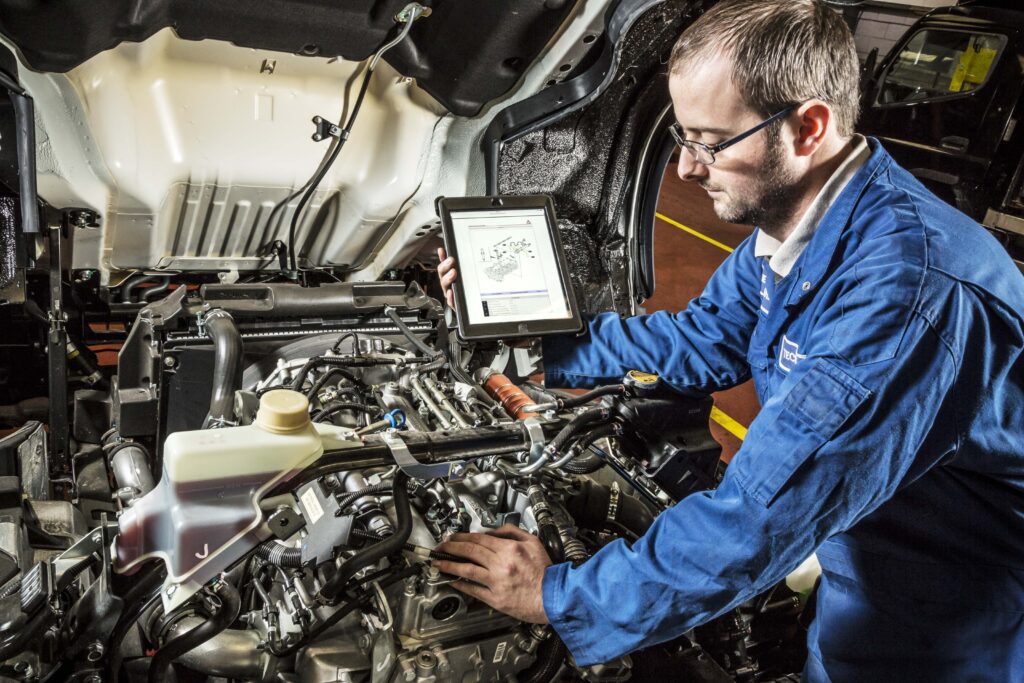‘Right to repair’ escalates
- PostedPublished 9 September 2018

THE Australian government has voiced unanimous support for a mandatory data sharing scheme that would grant independent workshops access to OEM vehicle repair information.
Both Labor and Liberal parties threw their weight behind the proposed scheme during a debate held in the Federation Chamber on 25 June, in part due to issues with the voluntary code – which was deemed to have failed in December 2017 due to a lack of manufacturer obligation.
At the time, the Australian Competition and Consumer Commission (ACCC) said: “Most car manufacturers do not provide independent repairers with the same level of access to technical data as they do to their dealer and preferred repairer networks”.
The newly proposed mandatory scheme would grant independent repairers easy access to the required dealer-level data and codes required to service newer cars. This will also help promote a level playing field, allowing independents to remain competitive with main dealers – which, in turn, will help keep costs down for customers.

Now, with substantial backing, it looks like a mandatory data sharing scheme is just around the corner. The new proposal is the product of collaboration between the Victorian Automobile Chamber of Commerce (VACC), Australian Automotive Dealer Association (AADA) and Motor Trades Association of Australia (MTAA).
These bodies have worked in conjunction with stakeholders and the government to establish the requirements of the mandatory code; key points that are flagged include common access costs for all involved and appropriate protection of sensitive vehicle codes such as security systems. The establishment of an independent to help administrate the mandatory code has also been suggested.
Australia’s Federal Chamber of Automotive Industries (FCAI) is still against the idea. It claims that out of the 23,000 independent service centres, which far outweigh the 3500 new car dealers, that “detailed and comprehensive information” is already available.

Tony Weber, chief executive of the FCAI, said: “With 23,000 independent outlets already having access to information on 85 per cent of the market via the FCAI website and other sources, where is the market failure that we are trying to address?”
However, VACC executive director Geoff Gwilym quickly dismissed this assertion. Speaking in an interview with GoAutoNews Premium, he said: “I would say the 85 per cent figure is just crap.
“The FCAI refers to links on its website and to the data held by the VACC – but data codes are not available to the VACC despite us having one of the biggest automotive libraries in Australia. OEMs are happy to sell components to the repair industry, but then want to slug them again by coding them so they work.”
Regardless, the FCAI maintains that a mandatory code is unnecessary. It has proposed, that said, that if such a code is pursued then the independent sector will be expected to invest in appropriate training and technology in order to provide safe repairs of a suitable standard.

Despite the FCAI’s protests, a mandatory data sharing scheme is seemingly in the best interests of the public. After all, a consumer study by the Australian Automotive Aftermarket Association (AAAA) recently revealed that customers favour the expertise of independent garages over main dealers. A total of 1500 owners were interviewed by Australian research company The Klein Partnership, on behalf of the AAAA, and 86 per cent claimed to be loyal to their local automotive workshop.
Ron Klein, director of TKP, said: “Consumers definitely trust and feel much more comfortable using local repairers with whom they have established relationships, with trust being the factor that overrides all others, including cost, shiny new premises, coffee machines and loan cars.”

Some 31 per cent of the owners interviewed had cars manufactured from 2010 to 2014, while 21 per cent owned cars built from 2015 to 2018. Consequently, the report showcased that independent workshops are still vital when it comes to newer cars.
As warranties expire on these increasingly complicated cars and repairs become more convoluted, demands on those operating independent garages will rise – further justifying the necessity to instate mandatory data sharing.
In the United State, the right to repair fight similarly grinds ever onwards. California recently became the 18th state to propose a ‘right to repair’ bill, adding more momentum to the movement, and several others states are set to debate similar policies in due course.
- CategoriesIn SightGlass
- TagsAAAA, choice of repairer, right to repair, SightGlass News Issue 14

